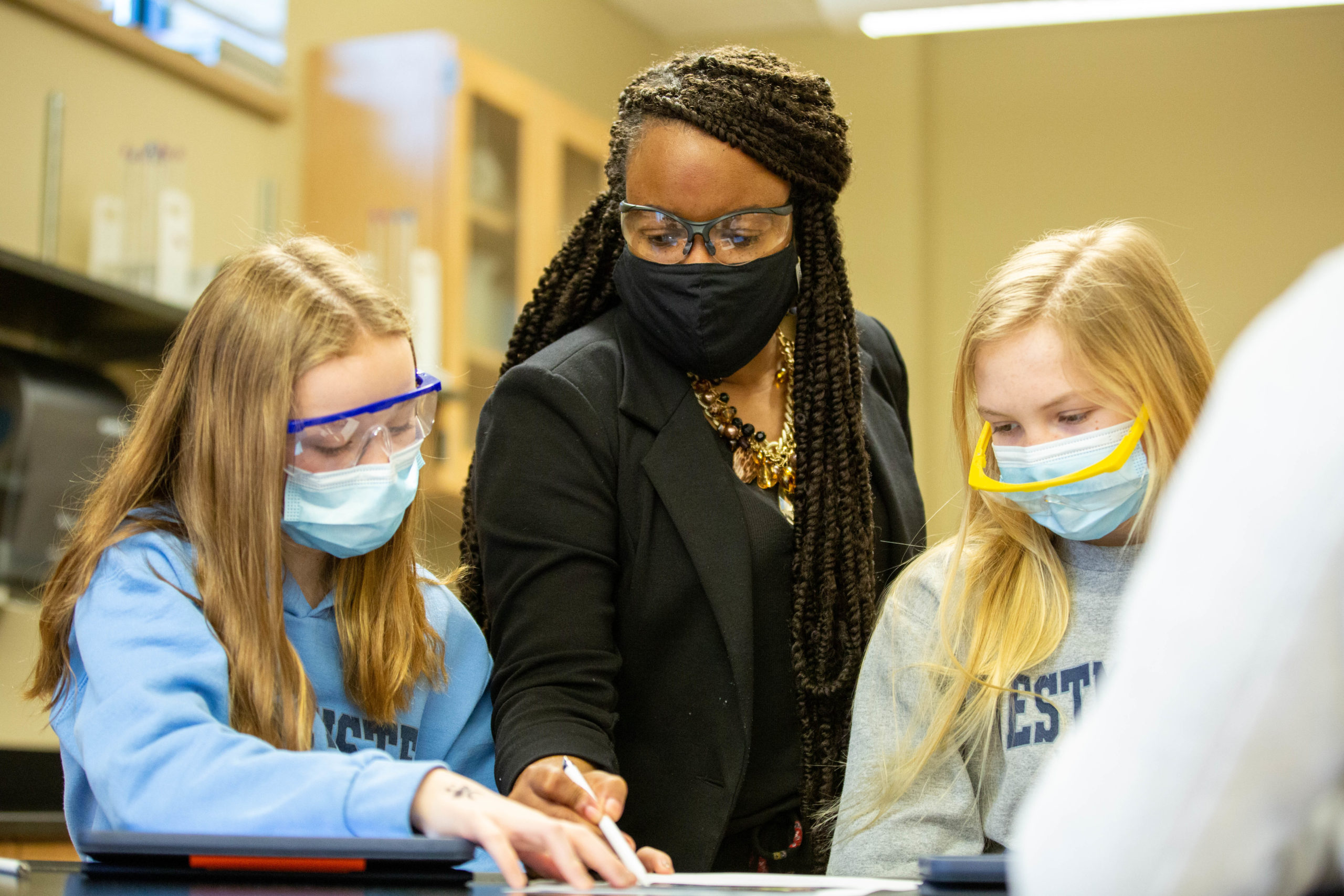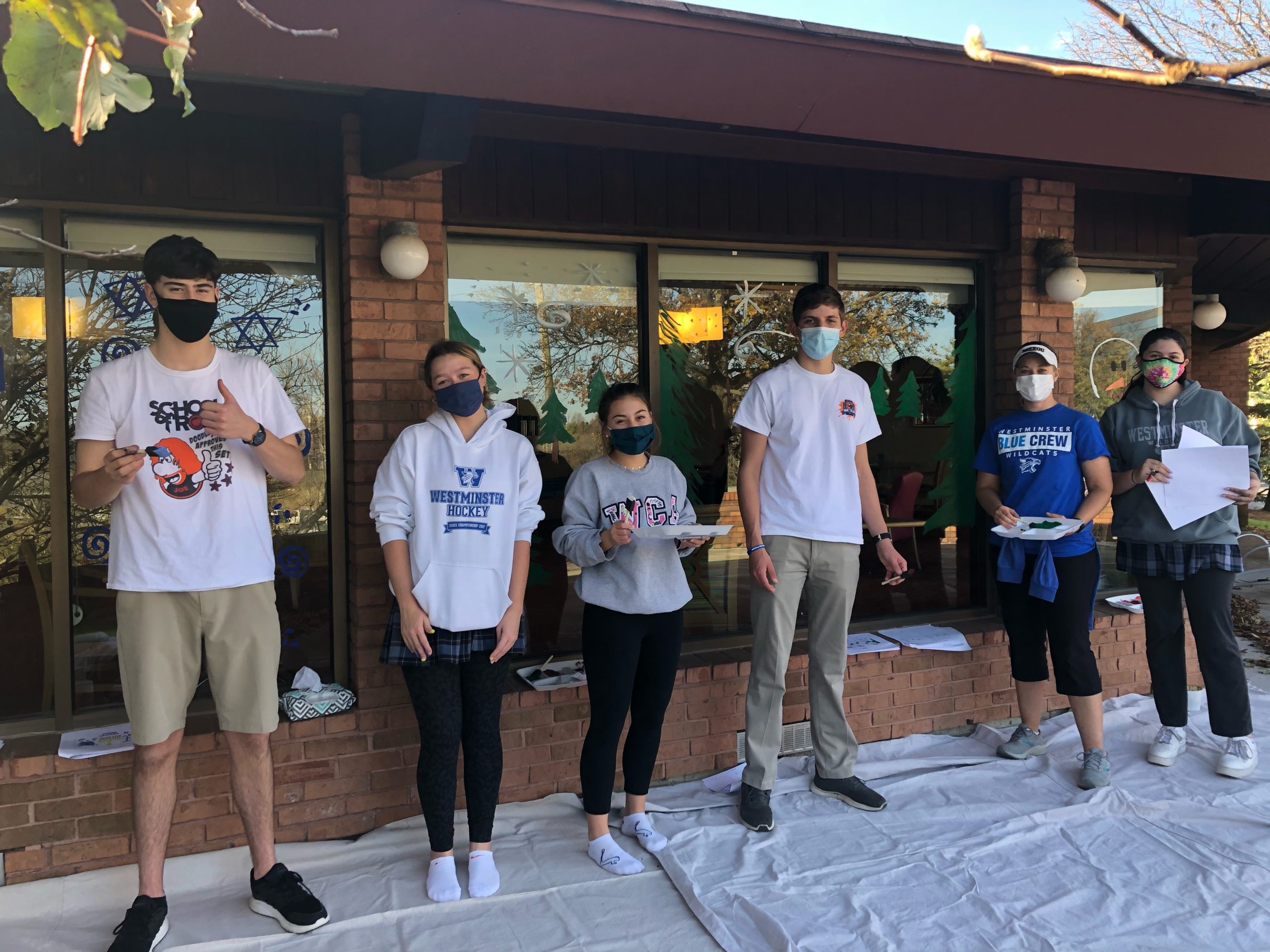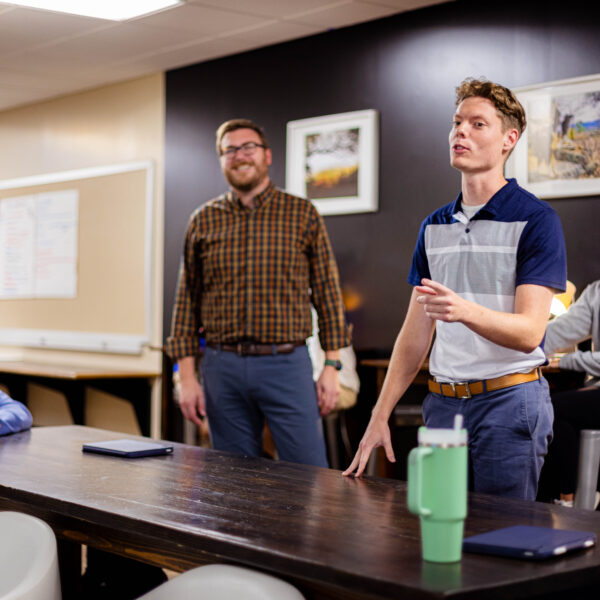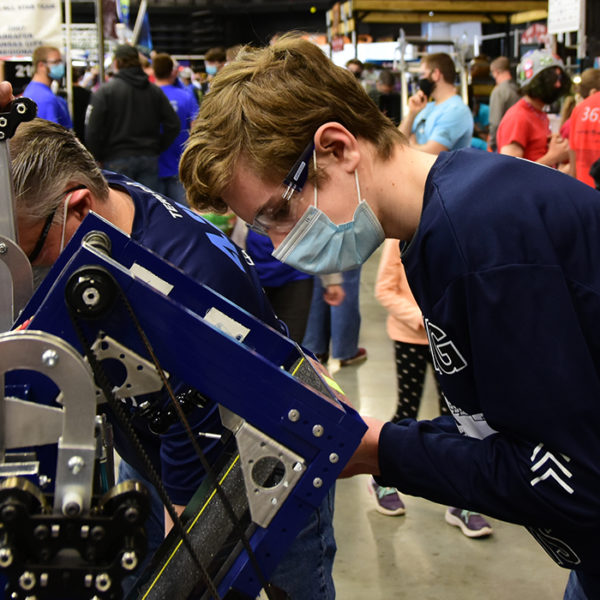Count It All Joy: Thriving During a Challenging Year
In the Westminster Portrait of Graduates, the young men and women of our school are challenged to “value learning,” “find joy,” and “cultivate their experience” even in the face of obstacles and difficulties. This school year has challenged our community to rise to the occasion in ways we never could have foreseen.
We are grateful and excited to have been able to maintain a safe and healthy campus while offering a full academic program in-person every day this year. Through creativity, hard work, and sacrificial love, Westminster faculty and staff members have willingly reimagined what goes on inside and outside the classroom.

IN THE CLASSROOM
From a teacher’s perspective, managing a classroom of in-person and remote students as well as other restrictions and safety protocol requires innovation and imagination. Through creative engagement strategies, Westminster faculty have continued to provide an academically excellent and relational learning environment for all students.
Many Westminster teachers say that this year’s greatest success is simply being able to be in the classroom with students every day. Chris Knerr, upper school history teacher, says that he is grateful to be able to maintain “relationships you develop with your students. It’s just good to be with them, and despite going home a bit more tired than normal, it’s been a good year to teach.”
Karen Thompson, eighth grade physical science teacher, says that she’s learned just how crucial social interaction is to the learning experience. She says, “Hats off to the kids — the year started so weird and awkward with only seeing each other’s eyes. As we got used to the protective systems we have in place [like wearing masks and using dividers], a beautiful thing started to happen: I saw the joy in the students again.” She has enjoyed seeing students love science just as much as before. When students learned about physical and chemical change by making mini s’mores in a lab experiment, Mrs. Thompson took the class outside to enjoy a socially-distanced snack.
Mrs. Thompson and her students have quickly adapted to the COVID-adjusted school schedule, which involves condensed classes and school ending at 1:15 every day. She is still able to “engage hearts, souls, and minds while teaching content” and has found that students deeply appreciate when their teacher takes the time to “engage in conversations and build beyond the curriculum.” Her students’ grades have not suffered and her classes are on track.
Overall, Mrs. Thompson praises the hard work of the administrators, faculty, and staff who have enabled education to take place in the classroom every day this year. She is so grateful to be able to teach science fully, including experiments in the lab.

AT-HOME LEARNERS
Approximately 5–10% of Westminster’s student body are classified as “at-home learners” on any given day. This includes students who felt more comfortable learning from home full-time this year as well as those who are in temporary quarantine situations. Many at-home learners participate in live on-campus classes, which gives them the opportunity to interact with their in-person peers.
At-home students recognize the opportunities and challenges of their situation. Junior Amber Allen says that she balances enjoying the flexibility and being able to sleep in a little more with the struggle of “not being able to see my friends and classmates as often as I would like.” Junior Joshua K. Anderson appreciates “still being able to participate in my leadership groups and clubs.” He describes feeling included and supported in his online classes: “If I ever have questions about anything we’re learning I can speak out in class and ask it, and if we’re ever having class discussions I can add to the conversation and for a moment feel like I am actually there in the classroom.”
Drama class poses a unique challenge due to its highly interactive nature. Gina Rosenberg, middle school drama teacher, engages remote students by “having them critique performances and participate in some dramatic games when possible.” Additionally, at-home students are able to film their own performances via their iPads.
Mrs. Rosenberg encapsulates the feelings of many when she says, “I do pray to return to an all in-class experience as the pandemic draws to an end. Humans are designed to be in community. For now, I will do what I can to make [at-home students] feel connected to this amazing school.”

SENIOR SERVICE
Cocurricular and extracurricular activities look different this year as well, and senior service is no exception. Most locations where students have volunteered in the past are not accepting volunteers for safety reasons, so Director of Student Life Susie Brown encouraged students to choose their own, self-directed, service projects. Instead of focusing on one project for the whole school year, the majority of seniors have participated in a number of shorter projects to meet the requirement of 40 hours (adjusted from the normal 50). Seniors have served in their families and communities wherever possible, including grocery shopping for elderly relatives, helping friends move, volunteering at church, and painting designs on the windows at Delmar Gardens, a nearby assisted living facility. For the first time, many service projects have included projects within Westminster: students are working at Pawprint Coffee, serving on Student Council, setting up lab equipment in the science department, and working alongside the maintenance department.
Senior Caroline Strauss has spent time volunteering with the groundskeeping crew, including “picking up trash, trimming trees, mowing the lawn, and putting the growth beds down on the athletic fields.” Caroline concludes that she didn’t expect to enjoy the work as much as she does: “It is really cool to see the physical fruits of our labor around school. My biggest takeaway has been learning about the hard work and dedication it takes to make our campus look so good. It makes me respect the work of the maintenance department so much more.”
SPIRITUAL & MENTAL HEALTH
Although we are very blessed to have been able to keep our campus open every day of this school year, the mental and emotional toll of growing up in a pandemic has still, unfortunately, affected our students. School counselors Mollie Pfuetze and Jonnell Patton have been working tirelessly to support students through such an unprecedented time.
They invited to campus the CHADS Coalition, an organization that speaks to students about mental health. These presentations include information about how to assess your own mental health, ask for help, and find trusted adults, ultimately equipping our students to better care for themselves and others. Mrs. Patton says that the CHADS presentations have “opened up conversations with students about where they are emotionally” and allowed the counselors to know who might be needing a little extra support.
Mrs. Pfuetze and Mrs. Patton notice that even small moments of joy make a huge difference in helping students feel supported and happy. They cite homework-free weekends, weekly dress down days, extra days off of school, exciting virtual events like Showtime at the Academy and Rock Paper Scissors, and the increase in school clubs with helping students cope with current circumstances. Weekly chapel videos from Director of Spiritual Life David Ottolini ’04 have focused on addressing how students are feeling and pointing to Jesus as the source of our ultimate hope and joy. Mr. Ottolini says, “Joy is not just a feeling or emotion but is an aspect of the fruit of our life in Christ. Jesus gives us the ability to rejoice in hope because he is alive. Even in tough times, we can be encouraged that the joy of the Lord is our strength.”
Above all, we are remembering to “count it all joy, my brothers, when you meet trials of various kinds, for you know that the testing of your faith produces steadfastness” (James 1:2–3).
…
This piece appeared in the Spring 2021 Chimes.




